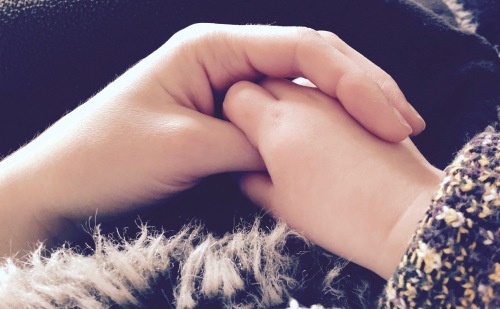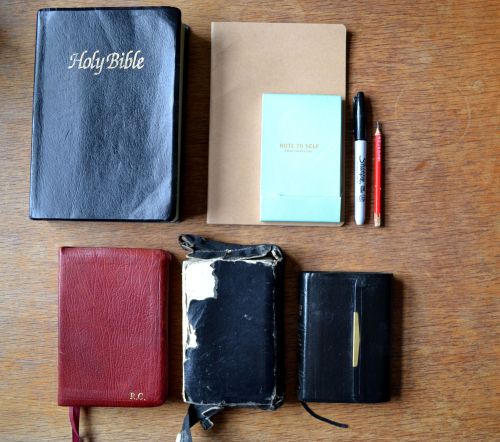Today’s blog is a guest post all about having a child prematurely, by Ruth Walker. Thanks to Ruth for her honesty, and down-to-earth writing about this emotional subject.
“Imagine the scene. You’re 27 weeks pregnant with your first child. You pack your car for a week at a church youth camp, where you’re going to be responsible adult helpers. You get to the site, pitch your tent, spend the first evening ironing out a few minor problems (forgetting the camp cutlery box, the marquee having a rip in the roof) and working on ‘getting to know you games’. You’re glad when you finally get to bed on your already deflating airbed. You haven’t had much time to think. You register your baby might not be moving quite so much as usual, but you shrug it off to ‘I’ve been too busy to notice’. You wake in the middle of the night. Not much movement. You read your maternity notes, do the whole cold drink and lay on your side thing. Still not much movement. The night goes by. By the time morning comes, you’re rather worried that something is wrong so you make the call, then trot off to your home hospital – all the way back home again. You spend the day having various tests with the result looks more worrying as the hours pass. Then the consultant says ‘right, we’re off to theatre – your baby is much too poorly’. You’re a bit dazed. You’re more than a little scared (not helped by the difficult conversation you have with the doctors along the lines of ‘how hard would you like us to try and save the baby’). Your precious firstborn son is born fighting hard for life, weighing 2lb 3oz at 27 weeks. That’s 13 weeks too early. You had no notice of the looming catastrophe. You have no idea that the complication he suffered even existed. You caught a brief glimpse of your son being whisked away to NICU, end up on the post-natal ward in the early hours of the morning, your husband is sent home and when the consultant visits the next day they give you the mind-bending news that if you had come earlier they might not have picked up on the problem, but if you had come any later the baby would have died. The son that you’ve still not met. The son that you won’t get to hold for a week. The son that you don’t do the first nappy change on, the first feed, the first dressing in clothes – pretty much the first anything. The son you spend ten weeks in Neo-natal with before taking him home at still sub-5lb.
About two years ago, I was asked to write a blog post on prematurity and how it has affected me as a Christian. I started to write it many, many times. Each time it would have been different. There could have been the “why me, Lord?” post, or the “jealous of other people’s normal” post. There could have been a “practical tips for surviving ten weeks in NICU” post or “bringing home a very small baby and keeping them disease free while sharing them with a church community desperate to meet them” post, or a “how to identify genuine concern from just plain nosy people” post, or a “I’m so thankful to never have to go to a Paediatric appointment again” post.
Since then, I have watched from afar or very close by a friend nearly dying in childbirth; a friend welcoming their longed-for child after gruelling years of infertility (aside: how do we manage that in a family focused church community?). I’ve watched a friend lose her baby shortly after birth. And I’ve had hard conversations with two other mothers who lost babies at the same gestation as mine in NICU. I was already aware that not every baby on the unit at the same time as us made it home at all, and that some had years of close medical watch and extensive operations. I’ve talked with a friend about being on the outside in a family where there are babies with severe medical needs, and how that takes up the time and energy of the extended family to the detriment of existing relationships. And I watched our little boy grow, and be healthy, and develop perfectly normally beyond all first expectations.
How do I feel? Thankful. Joyful. Humble. Hopefully I’ve developed beyond the self-centred person I used to be. Hopefully I’ve learned empathy. Hopefully I’ve developed my listening ear. And I know for sure I’ve developed a faith in the power of prayer – not necessarily for miracles, but for the compassion and love I can try to bring to others in difficult situations, and for their strength to deal with those situations.
And honestly – how did it affect me? Well, now we’ve welcomed our second child safely, I have come to understand what I missed. The simplicity of a more normal pregnancy and delivery. The rush of love everybody raves about. The sheer joy of a newborn you can touch and love straight away with no machines or incubator barriers. And while I am hugely blessed in this, I’m wistful that my precious boy and I did not experience this; that our love has been a more refined-by-fiery-trial bond and that our relationship is defined by worry and over-protectiveness. I feel guilty about the less obvious emotional attachment I feel to him sometimes in comparison. I struggle with the thought that maybe I did have PND after all, but just chose to ignore it and struggle on regardless. I wrestle now with scriptures such as ‘Lo, children are the heritage of the Lord and the fruit of the womb his reward’ and how that applies to the childless, or those in difficult circumstances.
My message to those going through trying times in pregnancy and birth and early childhood? Keep going. It’s impossible to work out during our trials why the Lord is testing us in this particular way. It’s entirely possible we’ll never know. But we do know He won’t test us more than we’re able to bear. Just take each hour at a time. It’s okay to feel like you’re not coping. Ask for help – it comes from unlikely sources sometimes. And to those of you watching from the side-lines? Make the effort to help in whatever way you can (like supermarket gift cards to spend on ready meals to eat at the hospital, or cleaning the house while they’re at the hospital, or even picking the gazillion apples from the tree and freezing them). If there’s nothing practical you can offer, just letting somebody know you are thinking of, and praying with and for them is helpful enough – and don’t expect a reply: sometimes there’s only headspace to register such thoughts. But be sure they are very much valued. And be understanding of the fact that when a poorly child leaves hospital it can still be very vulnerable – as can its parents. Genuine concern is always welcome, but nosiness isn’t. And sometimes we all have a habit of asking personal questions when they might not be welcome. Talking about traumatic experiences is a very useful therapy, but not always right away. Hence the delay in this blog post!”




